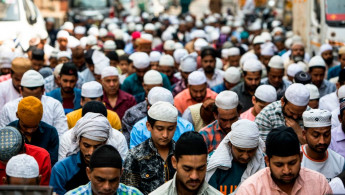US watchdog 'outraged' as State Dept omits India from 'countries of particular concern' list
The US Commission on International Religious Freedom (USCIRF) expressed its outrage at the US State Department on Friday for leaving India off the list of 'countries of particular concern' under the International Religious Freedoms Act.
The USCIRF, a US government watchdog, said it found the omission of both India and Nigeria from the list 'inexplicable', according to a statement on their website, and accused the State Department of 'turning a blind eye to both countries’ particularly severe religious freedom violations'.
"There is no justification for the State Department’s failure to recognise Nigeria or India as egregious violators of religious freedom, as they each clearly meet the legal standards for designation as CPCs,” the commission’s chairperson, Nury Turkel, said in the statement.
"The State Department’s own reporting includes numerous examples of particularly severe religious freedom violations in Nigeria and India," he added.
It is incomprehensible that @StateDept would exclude #Nigeria & #India from its designation of Countries of Particular Concern (CPCs).
— Nadine Maenza (@nadinemaenza) December 2, 2022
How can they ignore the horrific atrocities being committed based on religious affiliation? As former Chair of @USCIRF, I am also outraged! https://t.co/tbjEwbv5sZ
The USCIRF has criticised India in the past for attacks against minorities, especially Muslims, over the past few years, and recommended that the US government designate it as a 'country of particular concern.'
The countries included on the list are China, Cuba, Eritrea, Iran, Myanmar, Nicaragua, North Korea, Pakistan, Russia, Saudi Arabia, Tajikistan, and Turkmenistan.
Nadine Maenza, the watchdog's former chair, expressed her shock at the omission online, accusing the State Department of ignoring 'the horrific atrocities being committed based on religious affiliation' in India and Nigeria.
Narendra Modi, who was first elected as Prime Minister in 2014, has been accused of presiding over a period of increased hatred against Muslims, as leaders from his Hindu nationalist Bharatiya Janata Party (BJP) have repeatedly stoked tensions or incited violence against minority communities.
There are several reports and studies that have reached similar conclusions, while journalists, academics and activists in India have repeatedly warned that religious violence and discrimination in India was on the rise.
A recent Pew Research Center report concluded that India saw the highest level of religious hostility of anywhere in the world in 2020, the first year of the Covid-19 pandemic.
Earlier this year, the USCIRF said: "The Indian government escalated its promotion and enforcement of policies - including those promoting a Hindu-nationalist agenda - that negatively affect Muslims, Christians, Sikhs, Dalits, and other religious minorities.
"The government continued to systemize its ideological vision of a Hindu state at both the national and state levels through the use of both existing and new laws and structural changes hostile to the country’s religious minorities."




 Follow the Middle East's top stories in English at The New Arab on Google News
Follow the Middle East's top stories in English at The New Arab on Google News

![A group of Palestinians, foreign and Israeli activists gather to participated in an olive picking event on the land in the town of Battir, which is under threat of confiscation by Israel in Bethlehem, occupied West Bank on 8 November 2024. [Getty]](/sites/default/files/styles/image_330x185/public/2182930803.jpeg?h=199d8c1f&itok=__0LgGsa)
